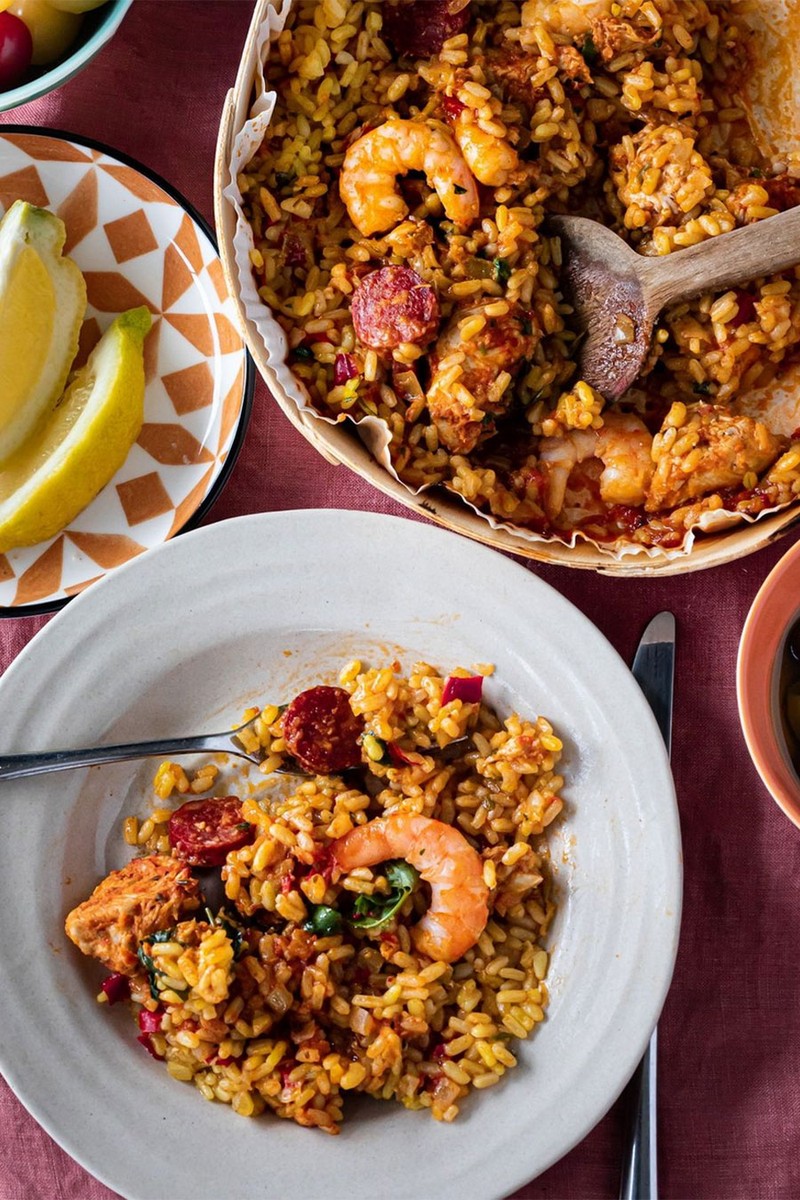Business Lessons From Charlie Bigham
I've been in the food business for 28 years now – almost a lifetime, but I didn’t start out in this industry. My career began in management consulting at Amsterdam Consulting, which is now Accenture. After that, I worked for a smaller specialist firm advising on the development of art galleries, theatres and museums. It wasn’t long before I realised that I wasn’t great at working for other people. I didn’t like being told what to do, so I knew I needed to carve my own path.
I’ve always loved cooking, eating and learning about food. When it came to deciding what kind of business to start, food seemed like a natural choice. My love for food goes way back to when I was 14. That’s when I started cooking.
Back then, the culinary scene in the UK wasn’t as exciting as it is today. I remember cooking lasagna quite a lot – a dish I still make now – and experimenting with different ingredients. Living by the sea, I often caught fish and foraged for things like cockles and mussels, which has become fashionable now, but back then it was just about finding good food.
Starting any business is tough, and mine was no exception. But I always tell people that, while it’s hard, it’s incredibly rewarding if you’ve got the right mindset. One of the early challenges was finding a bank that would work with us, which was surprisingly difficult at the time. Securing premises was another hurdle, and the hardest part – then and now – is finding great people to join the team. When you’re small and unknown, convincing talented people to take a risk on you is tricky, especially if they’re leaving established careers. But I managed it, and I’ve had some amazing team members from day one. Even today, attracting the right talent can sometimes be a challenge.
I think one of the reasons I’ve been able to persuade people to join me is my belief in what we’re doing. From the start, I knew I had a business idea that could grow, and working for a high-growth, independently owned business can be far more interesting than getting stuck in the corporate world. When you work in a small company, your impact is much more visible – both the good and the bad. And I’ve always been drawn to people who aren’t afraid to take a bit of a risk.
There have been a few pivotal moments over the years, but for us, moving premises and scaling up has been a challenge. Because we make all our own food from scratch, space has always been tricky. Each time we’ve outgrown a location, it’s been a huge decision to move into bigger premises. It’s expensive – not just the rent, but fitting it out to meet all the food safety and hygiene standards. Each move required a significant financial stretch, but it’s paid off in the long run. We’ve done it three times now, and every time, it feels like putting everything on the line. But those are the moments that really push the business forward.
We have to be careful not to get too caught up in food trends. Living in London, which is such a melting pot of new ideas, it’s tempting to follow the latest trends like fermented food or South Korean cuisine. However, our job is different. When we develop a recipe, we want it to have broad appeal across the UK. We sell in thousands of shops, so it’s important we focus on familiar dishes that resonate with a wide audience. Two of our most popular dishes are lasagna and fish pie. Our goal is to create the best version of these dishes and never stop improving them.
Word of mouth is our number-one marketing tool. The best marketing we have is when customers recommend our food to friends and family, and then come back to buy it again. That’s why we’re so focused on making great food and constantly improving it. We’ve also done some TV advertising, including a recent cartoon commercial, and it’s been nice to see the positive momentum it’s created. Social media plays a role too, but I see it as part of a larger strategy. It’s not about focusing on just one thing. The most effective campaigns are those that incorporate multiple platforms at once. A 360º approach works best, and I leave that to the talented marketers on my team.
Right now, the hardest thing about running a business is finding and retaining great people. We put a lot of effort into making our company a great place to work, and we’re recognised for it through various surveys. We now have a diverse team of 700 people, and we work hard to ensure everyone feels included and engaged.
I decided to step down as CEO some years ago. We’ve now got a very good CEO who’s been with us for the last seven or eight years. I did my time, I guess. Now, I describe myself as the founder of the business because, well, no one can argue with that!
My leadership style has changed over the years. Hopefully, I’ve stayed true to who I am, but as the business grows, you’ve got to adapt and stand back a bit – more influencing than directing. I try to listen more, though I could always get better at it. But I think it’s really important that a consistent set of values and behaviours runs through a business over time, so I hope I haven’t changed fundamentally. I’ve probably grown up a bit, learned a lot from mistakes along the way.
Thankfully, I have an excellent work-life balance. The key is not worrying about it too much. I’m fortunate – I find it easy to switch off between work and my personal life. I don’t stick to strict 9-to-5 hours. If something needs doing outside of those hours, I’ll handle it, but it won’t interrupt my life. And since we’re a business that operates 24/7 – someone is always working, even if it’s just engineers keeping things running – you have to delegate and know when to switch off. Otherwise, you’ll go mad.
It's vital in business to make mistakes. But it’s even more important to learn from them and move on. I don’t like dwelling on failures; I think it’s negative. My mindset is more, ‘Make the mistake, learn from it, don’t make it again, and move on’.
Our goal for the brand is simple: get a little bit better every day. That’s our mantra. It’s not just about improving the food we make, though that’s crucial. We want everything to improve: our people policies, our technology, our engineering, all of it. We’re constantly working on around 100 different projects to make things better across the board. If we do that, attract and retain brilliant people, and keep improving our food, the results will follow – hopefully sales and profits will increase, but we focus on the inputs not the outputs.
For aspiring entrepreneurs, I have two pieces of advice. First, don’t procrastinate. Just get going – life’s too short to hesitate. Second, if you’re going into the food business, make sure your product tastes fantastic. It’s amazing how often people forget that. And if I could give my younger self any advice, it would be: just get on with it and make sure you have fun along the way.
Visit CharlieBighams.com
Charlie’s cookbook, Supper with Charlie Bigham (Mitchell Beazley, £26), is available to buy now from Amazon.co.uk
All products on this page have been selected by our editorial team, however we may make commission on some products.
DISCLAIMER: We endeavour to always credit the correct original source of every image we use. If you think a credit may be incorrect, please contact us at [email protected].







